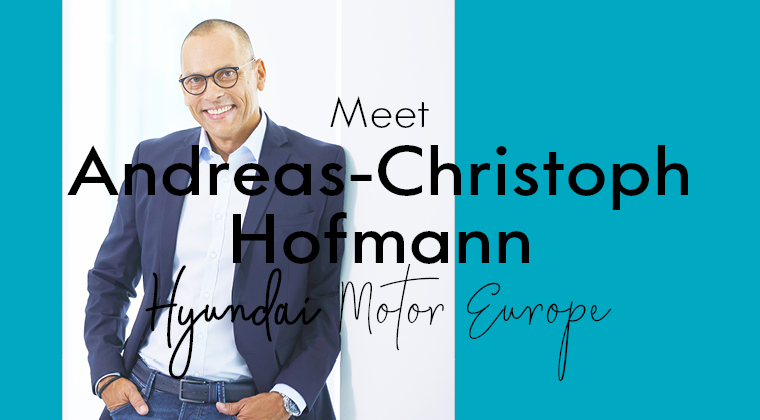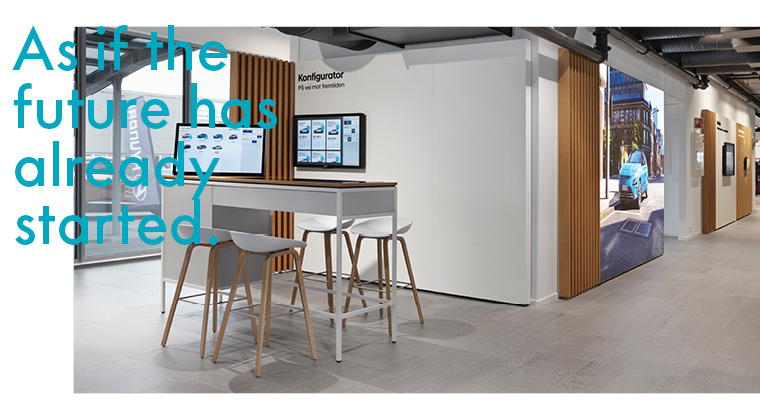As if the future has already started
Vizona meets Andreas-Christoph Hofmann, Vice President Marketing & Product at Hyundai Motor Europe
If you want to assess the future of alternative drive systems, you have to look at Hyundai. The South Korean manufacturer already offers all major technologies in marketable form. In 2020, it delivered the world’s first serially produced fuel cell trucks to customers in Switzerland. And in Coventry/UK, the company is testing individual air mobility with emissions-free vertical take-off solutions. Andreas-Christoph Hofmann fills us in on plans for the years ahead.

The marketing strategist held positions at Audi, Mercedes and BMW for around 30 years. At Hyundai Motor Europe, where he is Vice President Marketing & Product, he has organised model launches in more than 40 countries since 2017.

1. What will power the cars most suited to widespread use in 2030?
ACH If we look at Europe, we can see a collective move towards clean mobility solutions. Take Italy, where electrified mobility was not high on the agenda. Now, the country is pushing hard for zero emission mobility on local level. As for Hyundai, we can picture a peaceful co-existence for different types of electrified powertrains — they all meet different needs. So far, we have introduced electrification technology to 75 % of our line-up, ranging from 48-volt mild hybrid technology to zero-emissions solutions.
2. Are hydrogen engines the technology of the future?
ACH Hyundai is already onto its second-generation mass-produced fuel cell electric vehicle, NEXO. We would say this is the technology of the present, not the future. The lack of refuelling infrastructure is the only factor stopping more consumers from switching to fuel cell technology. That is why our company is investing in infrastructure projects to promote charging stations for electric vehicles and hydrogen refuelling stations. We see particularly great potential for road freight and are currently rolling out an application in Switzerland. This project will put no fewer than 1,600 fuel cell trucks on the road by 2025.
Our Urban Air Mobility team aims to launch air taxis in major urban centres by 2028. Andreas-Christoph Hofmann
3. Leasing, sharing, car subscription … what is your preferred option for bringing vehicle to driver?
ACH Hyundai has already launched several regional car sharing programmes in different European countries. Fleets are also an essential part of our business. In parallel, our Urban Air Mobility team aims to launch air taxis in major urban centres by 2028. As you can see, we are exploring many different options. Having said that, we still see significant demand for individual car ownership, so private car sales will remain core to our business. Hyundai Mocean is a subscription model that we are rolling out in Europe in 2021.
4. What impact will all these technological advances have on stationary dealerships?
ACH The rise of network technology, cloud computing and big data analysis will see people access digital data in all areas of their lives, including their cars! That is why, over the coming years, Hyundai will move from simply making cars to becoming a smart mobility solution provider.

That is already reflected in our showroom layouts today. We have also built online sales tools, such as our online showroom. In future, Hyundai aims to turn the process of buying a vehicle into a seamless blend of online and offline experiences.